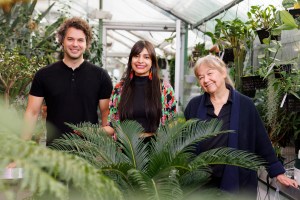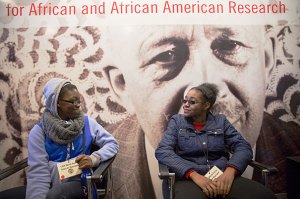All articles
-
Arts & Culture
Humanities offer marketability in a competitive world
Harvard sophomore finds support for his concentration in Ancient History (Greek and Roman), which allows him to pursue his passions “while maintaining marketability in an increasingly competitive world.”

-
Arts & Culture
Slavery’s chilling shadow
Toni Morrison delivered the first of six Charles Eliot Norton Lectures to an adoring crowd at Sanders Theatre on Wednesday. Morrison is the 58th scholar given the Charles Eliot Norton Professorship of Poetry.
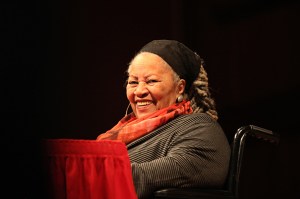
-
Science & Tech
Study that undercut psych research got it wrong
A study last year claiming that more than half of all psychology studies cannot be replicated turns out to be wrong. Harvard researchers have discovered that the study contains several statistical and methodological mistakes, and that when these are corrected, the study actually shows that the replication rate in psychology is quite high.

-
Campus & Community
My buddy
Juniors Fatima Bishtawi and Amanda Mozea made lasting connections through the Best Buddies program.

-
Health
Aspirin found to reduce overall cancer risk
An analysis of data from two long-term epidemiologic studies has found that regular use of aspirin significantly reduces the overall risk of cancer, an effect that primarily reflects a lower risk of colorectal cancer and other tumors of the gastrointestinal tract.
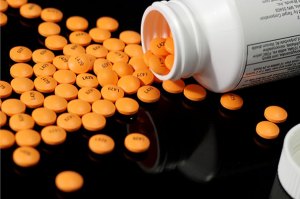
-
Arts & Culture
Seeing more
In his weekly 90-minute lectures, Professor Robin Kelsey brings historical awareness and contextual experience to 13 technologies that have transformed visual communication.

-
Science & Tech
$1M in grants to support 10 climate research projects
Ten research projects driven by faculty collaborators across six Harvard Schools will share over $1 million in the second round of grants awarded by the Climate Change Solutions Fund, an initiative launched last year by President Drew Faust to encourage multidisciplinary research around climate change.
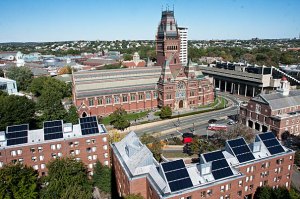
-
Campus & Community
President Faust’s climate initiative awards $1M in grants
The recipients of grants awarded by the Climate Change Solutions Fund, an initiative launched last year by President Drew Faust, were announced. The 10 winning projects are purposely diverse in focus, ranging from policy and law to science and health. Several use Harvard’s campus as a “living laboratory” — when possible — for testing and…
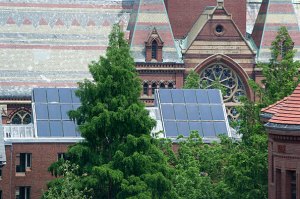
-
Science & Tech
The shifts from climate change
Grasslands across North America will face higher summer temperatures and widespread drought by the end of the century, a study says, but those negative effects should be offset by an earlier start to the spring growing season and warmer winter.

-
Nation & World
The costs of inequality: A goal of justice, a reality of unfairness
America’s prison system houses huge numbers of inmates, many of them serving lengthy mandatory sentences, but research finds little evidence that it produces criminal deterrence.

-
Nation & World
In GOP race, rage is all the rage
Harvard analysts discuss the deep roots of Republican anger driving this confounding and historic 2016 election.

-
Campus & Community
Harvard joins in filing NLRB brief
Harvard joins other private universities in legal brief asking NLRB to keep prior ruling avoiding graduate student unions.

-
Arts & Culture
‘Ways with Words’ conference will spark conversation
The Radcliffe Institute will host “Ways with Words: Exploring Language and Gender,” a conference on March 3-4 that explores the interplay of gender, language, and why Facebook now offers three pronouns.

-
Campus & Community
Faculty Council meeting held Feb. 24
On Feb. 24 the members of the Faculty Council met. Their next council meeting is March 9. The next meeting of the faculty is March 1.
-
Nation & World
Clean Power Plan’s legal future ‘a mess’
The future of the President Obama’s Clean Power Plan hangs in the balance with the Supreme Court vote to freeze the plan in place, halting implementation while legal issues are decided by the U.S. Court of Appeals for the D.C. Circuit and, likely, by the Supreme Court itself.
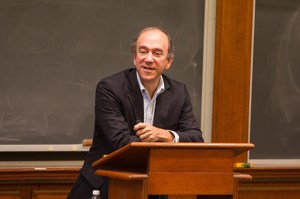
-
Nation & World
Variations on racial tension
Weatherhead Center panelists highlighted striking contrasts in how nations perceive and grapple with racial inequality.

-
Nation & World
Case for reparation gains international force
Distinguished scholar and activist Sir Hilary Beckles, who is leading the international effort to seek restitution from European nations that engaged in the slave trade in the Caribbean, made the case for reparations during a talk at Harvard Law School this week.

-
Nation & World
Business as usual
Evelyn Krache Morris, an associate with the International Security Program of the Belfer Center, assesses the Mexican drug trade in the wake of the arrest of El Chapo, the world’s most powerful trafficker.

-
Arts & Culture
Blended voices, each with a personal charge
Five poets are celebrated in “‘A Language to Hear Myself’: Feminist Poets Speak,” a Schlesinger Library exhibit running from Feb. 29 to June 17, with an accompanying performance March 1.
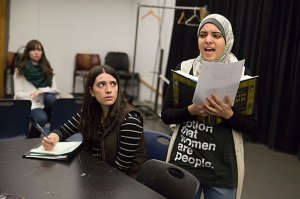
-
Campus & Community
Kleckner receives Thomas Hunt Morgan Medal
Nancy Kleckner, the Herchel Smith Professor of Molecular Biology, has been awarded the Thomas Hunt Morgan Medal by the Genetics Society of America in recognition of her many significant contributions to our understanding of chromosomes and the mechanisms of inheritance.

-
Nation & World
Ever-present Orwell
“What’s intriguing about bringing ‘1984’ back now is that some of those questions are out there again,” said Ash Center director Anthony Saich, an expert on Chinese politics. The Ash Center is co-sponsoring, with the A.R.T., a series of discussions on “topics that spark out of ‘1984.’” The next in the series of discussions is…

-
Nation & World
Election spotlight turned on media
Veteran political journalists Jill Abramson, formerly of The New York Times, and CNN’s Sam Feist discuss the good, the bad, and the ugly of the 2016 presidential election coverage.
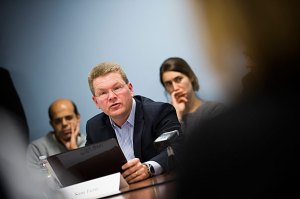
-
Health
Where runners go wrong
A new study out of Harvard Medical School and the National Running Center at Harvard-affiliated Spaulding Rehabilitation Hospital examined why runners get injured so often.
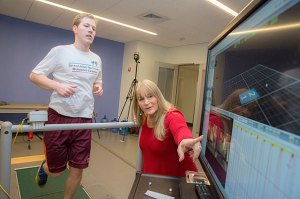
-
Health
High poverty’s effect on childhood leukemia
Children with acute lymphoblastic leukemia who live in high-poverty areas are substantially more likely to suffer early relapse than other patients, according to a new study.

-
Health
The costs of inequality: Money = quality health care = longer life
National health insurance is just a first step to solving the divide between America’s well-off healthy and its poorer, sicker people, Harvard analysts say.
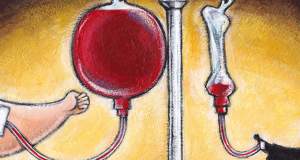
-
Campus & Community
Futuristic PIVOT app serves up Harvard history
Harvard University formally launched its official interactive online tour app last week. PIVOTtheWorld is a free app that allows visitors to visually experience the history of Harvard with a swipe — or pivot — of their smart phone.

-
Campus & Community
Lucy Liu applauds students for honoring cultural diversity
The Harvard Foundation honored Lucy Liu as its 2016 Artist of the Year.
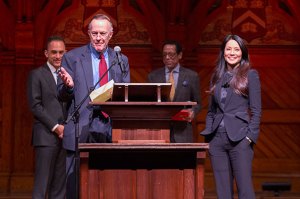
-
Arts & Culture
Egyptian-style handiwork with a digital past
Harvard is behind the re-creation of a chair from a 4,500-year-old tomb.
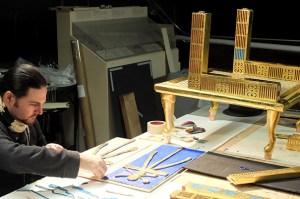
-
Arts & Culture
Morrison’s first Norton Lecture set for March 2
Toni Morrison will deliver the Charles Eliot Norton Lectures, which will be held throughout March and April at Sanders Theatre. Hosted by the Mahindra Humanities Center, Morrison is the 58th scholar to be given the arts and humanities honor, officially named the Charles Eliot Norton Professorship of Poetry.



